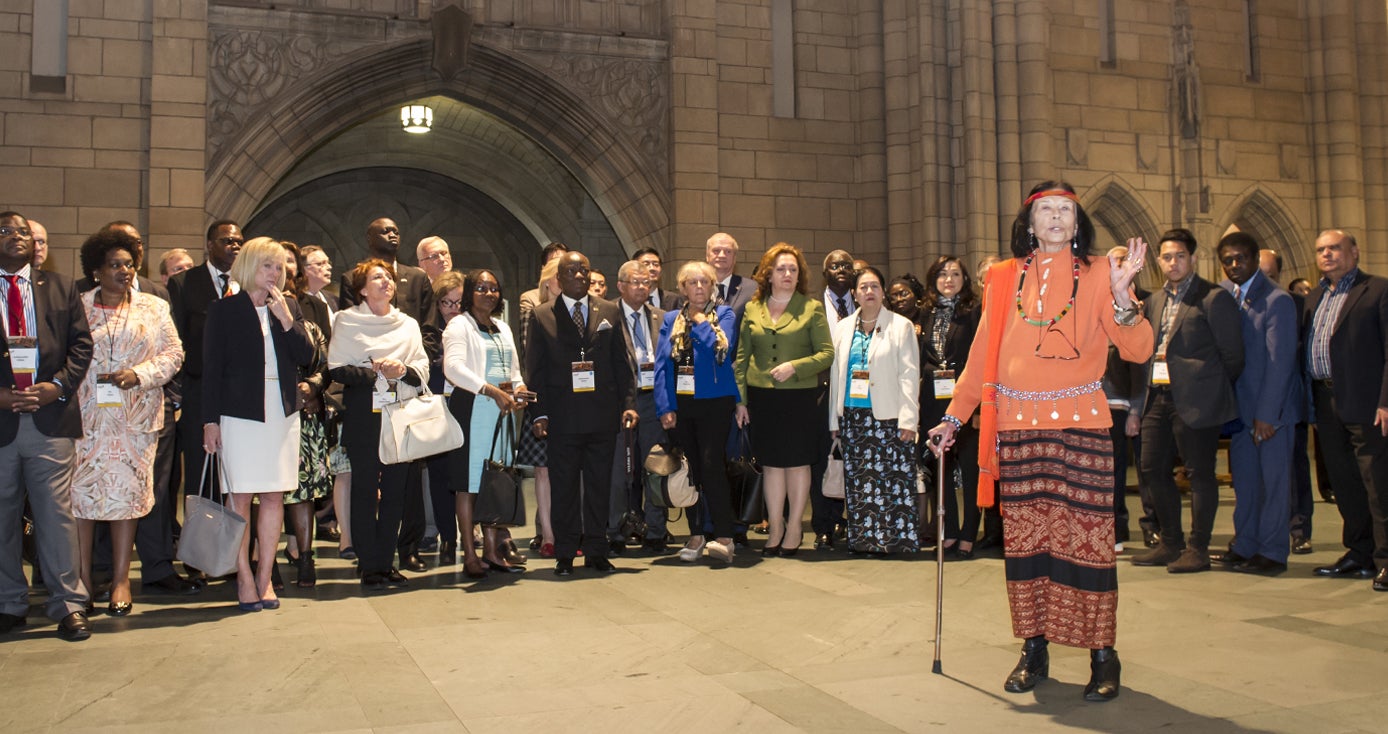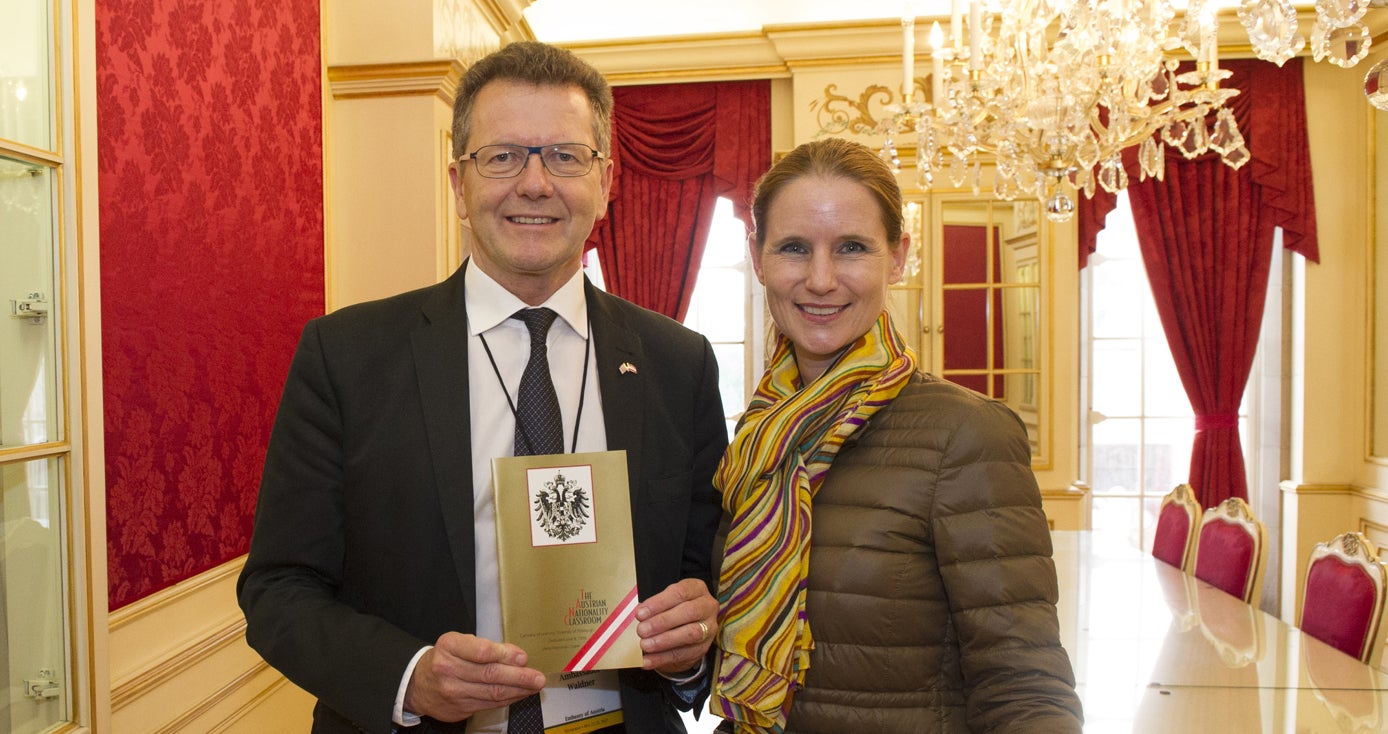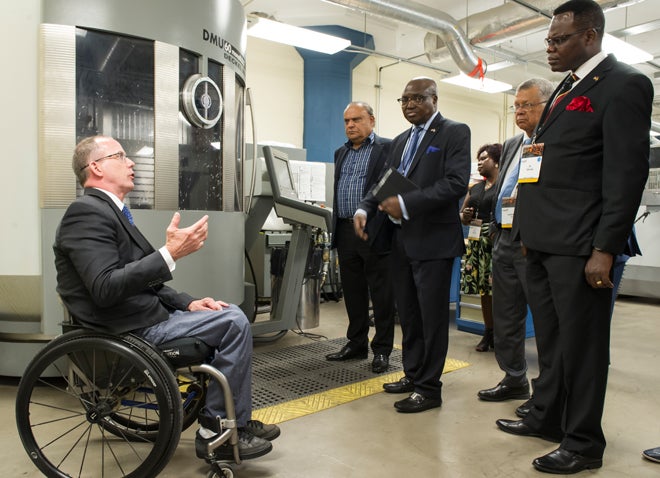
Subscribe to Pittwire Today
Get the most interesting and important stories from the University of Pittsburgh.Culture, Innovation Build Global Connection
Wolfgang Waldner, the Austrian ambassador to the United States, stood beside his wife Gudrun Faudon-Waldner, as the couple gazed into a wall-mounted display case.
Located in the Austrian Nationality Room — one of 30 Pitt classrooms that honor international cultures — the case contains a first printing of a musical score written by 18th-century composer Joseph Haydn. Adjacent to the book of music is a custom-made statuette from Vienna as well as a ceremonial key, bestowed upon then-Pitt Chancellor Mark A. Nordenberg as a gift from Pittsburgh’s Austrian community in 1996. The Waldners were visibly moved by the University’s tribute to their country.
“This room is an exquisite display of Austrian history. It is apparent that a great deal of care and dedication was put into creating this very authentic portrayal of my heritage,” said Waldner, who has served as his country’s leading diplomat to the United States since January 2016. “It gives me joy to know that Pitt’s students are exposed daily to such rich Austrian culture in this unique and engaging learning environment.”
Waldner was one of more than 30 international diplomats, many joined by family members, who spent a day at Pitt last month. Their visit to the Nationality Rooms, guided by longtime director E. Maxine Bruhns, was part of a larger three-day exploration of the city of Pittsburgh planned by the U.S. Department of State through its Experience America program. Begun in 2008 under President George W. Bush, the program is designed to take the foreign ambassadors posted in Washington to areas outside the capitol region, creating opportunities to connect with government, business, academic and cultural leaders. Previous visits have included Atlanta, Houston, Los Angeles and New Orleans.
The delegation spent the afternoon within the University’s Human Engineering Research Laboratories (HERL). A collaborative effort among Pitt, UPMC and the U.S. Department of Veterans Affairs, the facility works to develop technologies that improve livability and mobility for people with disabilities.
HERL’s research team displayed new wheelchair innovations, including a recently unveiled waterproof chair that runs entirely on compressed air as well as a chair designed specifically for managing challenging terrains. Members of the delegation also watched live demonstrations of the Assistive Robotic Arm Interface, the Cueing Kitchen and the Strong Arm, all HERL innovations designed to assist those with disabilities in living comfortably within their homes.
Rory A. Cooper, HERL’s founding director, said occasions such as the ambassadors’ visit to Pittsburgh create opportunities to start long conversations that eventually lead to groundbreaking partnerships. He looks forward to continuing the dialogues that were started with diplomats during their tours at international meetings and other gatherings Cooper plans to attend later this year.
“Like everyone else, people living with disabilities are capable of extraordinary things with just a little bit of help. This fact is true for North America as well as Africa, Europe, South America and the rest of the world,” said Cooper, the FISA/Paralyzed Veterans of America Chair and Distinguished Professor in Pitt’s Department of Rehabilitation Science and Technology in the School of Health and Rehabilitation Sciences.
“The technologies being developed in our lab help facilitate a more inclusive and livable society across borders," Cooper said. "I believe we made important first steps in making valuable connections here that will be reinforced in the future.”




